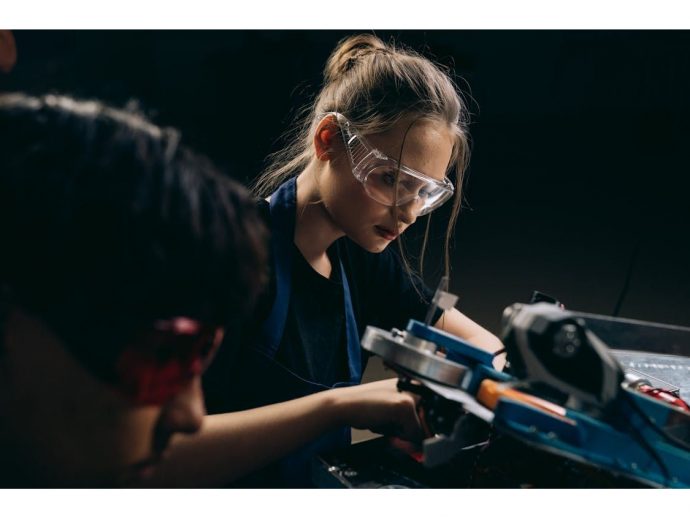Categories more
- Adventures (16)
- Arts / Collectables (14)
- Automotive (36)
- Aviation (10)
- Bath, Body, & Health (73)
- Children (6)
- Cigars / Spirits (30)
- Cuisine (16)
- Design/Architecture (17)
- Electronics (12)
- Entertainment (4)
- Event Planning (3)
- Fashion (43)
- Finance (8)
- Gifts / Misc (6)
- Home Decor (44)
- Jewelry (39)
- Pets (3)
- Philanthropy (1)
- Real Estate (11)
- Services (21)
- Sports / Golf (14)
- Vacation / Travel (60)
- Watches / Pens (14)
- Wines / Vines (24)
- Yachting / Boating (15)
Selecting the Right Machinery for Your Projects
Published
05/21/2024Selecting the appropriate machinery for your projects is crucial for ensuring efficiency, productivity, and safety. With a myriad of options available in the market, making the right choice can be daunting. This guide aims to simplify the process by outlining key considerations and factors to weigh when selecting machinery for various projects.
Understanding Project Requirements
Before diving into Machinery for Sale, it's essential to thoroughly understand the requirements of your project. Consider factors such as project scope, timeline, budget, and specific tasks that need to be completed. Assessing these factors will help in determining the type and size of machinery needed.
Research and Evaluation
Once project requirements are clear, conduct thorough research on available machinery options. Consider factors such as brand reputation, reliability, performance, and customer reviews. Evaluate each option based on how well it aligns with your project needs and objectives.
Assessing Equipment Specifications
Pay close attention to equipment specifications such as capacity, power, speed, and features. Ensure that the machinery you choose is capable of handling the workload of your project efficiently. It's also important to consider the compatibility of the machinery with existing equipment and infrastructure.
Quality and Durability
Investing in high-quality machinery is essential for long-term reliability and durability. While it may be tempting to opt for cheaper options, they often come with hidden costs due to frequent repairs and maintenance. Prioritize quality and durability to avoid downtime and costly repairs in the future.
Safety Features
Safety should be a top priority when selecting machinery for your projects. Look for equipment that is equipped with safety features such as emergency stop buttons, guards, and warning systems. Ensure that the machinery complies with industry safety standards and regulations to minimize the risk of accidents and injuries.
Training and Support
Consider the availability of training and support resources provided by the manufacturer or supplier. Proper training is essential for operating machinery safely and efficiently. Additionally, reliable technical support ensures prompt assistance in case of any issues or concerns during project execution.
Cost Analysis
While cost is an important factor, it should not be the sole determinant in machinery selection. Conduct a thorough cost analysis that takes into account not only the initial purchase price but also long-term operating costs, maintenance expenses, and potential ROI. Opt for machinery that offers the best value for money in terms of performance, reliability, and durability.
Environmental Impact
Evaluate the environmental impact of the machinery you choose, including factors such as energy consumption, emissions, and sustainability. Opt for equipment that is energy-efficient and environmentally friendly whenever possible to minimize carbon footprint and comply with regulatory standards.
Finalizing the Decision
After thorough research and evaluation, narrow down your options and make an informed decision based on the factors discussed above. Consider consulting with industry experts or seeking recommendations from colleagues to ensure that your choice aligns with best practices and industry standards.
Conclusion
Selecting the right machinery for your projects requires careful consideration of various factors including project requirements, equipment specifications, quality, safety, cost, and environmental impact. By following the guidelines outlined in this guide, you can make informed decisions that contribute to the success and efficiency of your projects while prioritizing safety and sustainability.















